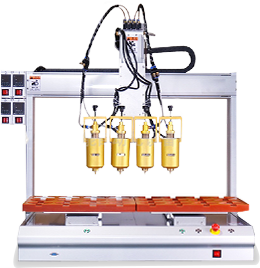

Industrial equipment frame stamping parts, as the "skeleton" support of industrial equipment, are made of high-strength cold-rolled steel, stainless steel and other metal plates as raw materials and are formed by precision stamping technology. Through customized molds, multiple processes such as blanking, bending, and punching are integrated to build the basic structure of the equipment frame. It is widely used in automated production lines, CNC machine tools, logistics and warehousing equipment and other fields, covering equipment frames, internal support skeletons, guide rail bases and other forms, providing rigid support, precise assembly benchmarks and modular integrated carriers for equipment, adapting to the development needs of miniaturization, high precision and high stability of equipment in the Industrial 4.0 era, and is an indispensable core component in the structural design of industrial equipment.
II. Product Features
(I) Core Performance Advantages
1. High strength and rigidity: metal plates with a tensile strength of 300-500MPa are used, which are hardened by cold stamping. The deformation resistance of the frame structure is increased by 20%-30%, which can stably carry heavy-duty modules inside the equipment, such as the spindle box frame of CNC machine tools, to ensure processing accuracy.
2. Precise size adaptation: the mold processing accuracy is controlled at ±0.05mm, and the punching hole position and bending angle are matched with the equipment design 1:1, realizing seamless integration of electrical components and transmission mechanisms, and facilitating rapid assembly of automated equipment.
3. Balance between lightness and functionality: by optimizing the hollow punching design (such as grids and strip holes), while reducing the frame weight by 15%-25%, cable channels and heat dissipation windows are reserved to adapt to the modular layout requirements of smart devices.
(II) Feature Comparison Table
Comparison Dimensions | Industrial equipment frame stamping parts | Traditional welding frame | Value |
Precision Control | ±0.05mm | ±0.5mm | Ensure high-precision integration of equipment |
Production efficiency | 30 - 50 Item/ Hour | 5 - 10 Item/ Hour | Adapt to large-scale order delivery |
Weight Control | Weight loss 15% - 25% | Heavy | Assisting with equipment lightweight upgrades |
Cost Advantage | The unit cost is low after mold sharing | Manual welding is expensive | Reduce equipment manufacturing costs |
III. Product Details
(I) Process Flow
1. Mold Customization: Based on the 3D model of the equipment, a multi-station progressive die is designed, integrating blanking, punching, and bending functions. After EDM and laser quenching, the mold life exceeds 1 million times, ensuring the consistency of mass production.
2. Raw material selection: SPCC cold-rolled steel (general equipment) and 304 stainless steel (food/medical equipment) are selected, with a thickness of 1.5-5mm. Pretreatment removes stress to ensure dimensional stability after stamping.
3. Stamping: On a 200-800T servo punch press, a continuous die stamping process is used to form a complex frame structure in one go, and M3-M8 threaded hole tapping and riveted nut implantation are completed simultaneously to improve assembly efficiency.
4. Surface treatment: Optional galvanizing (salt spray test 720 hours), powder spraying (color customization), and blackening treatment are available to enhance corrosion resistance and equipment appearance compatibility.
(II) Typical application scenarios
Automated production line: As a conveying equipment frame and robot installation base, high-strength support enables 24-hour continuous operation, and precise hole positions ensure rapid docking of robotic arms and sensors, improving the flexibility of production lines.
CNC machine tools: Processing bed rail frames and spindle box support structures, cold work hardening process to enhance rigidity, control vibration deformation during milling, and ensure part processing accuracy ≤0.01mm.
Logistics and warehousing equipment: Manufacturing smart shelf columns and AGV body frames, lightweight hollow design to reduce equipment weight, improve energy utilization, precise hole positions to adapt to RFID antennas, and jacking mechanism integration.
(III) Quality Control System
Implement "full-process digital quality inspection": During the stamping process, the pressure sensor monitors the mold load in real time and warns of abnormal deformation; the first piece is scanned in full size by a three-dimensional coordinate measuring machine to generate a deviation report; during batch production, 1 piece is selected for salt spray and tensile testing in every 50 pieces, and 100% of the key dimensions pass the go/no-go gauge to ensure that the product complies with ISO 9001 and the JB/T 5000.3 standard of the machinery industry, providing "strong skeleton" support for industrial equipment.
 Headquarters tel.
Headquarters tel. E-mail.
E-mail.